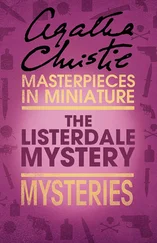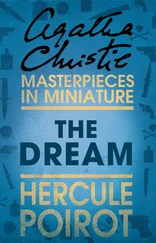Agatha Christie - The Labours of Hercules
Здесь есть возможность читать онлайн «Agatha Christie - The Labours of Hercules» весь текст электронной книги совершенно бесплатно (целиком полную версию без сокращений). В некоторых случаях можно слушать аудио, скачать через торрент в формате fb2 и присутствует краткое содержание. Жанр: Классический детектив, на английском языке. Описание произведения, (предисловие) а так же отзывы посетителей доступны на портале библиотеки ЛибКат.
- Название:The Labours of Hercules
- Автор:
- Жанр:
- Год:неизвестен
- ISBN:нет данных
- Рейтинг книги:4.33 / 5. Голосов: 3
-
Избранное:Добавить в избранное
- Отзывы:
-
Ваша оценка:
- 80
- 1
- 2
- 3
- 4
- 5
The Labours of Hercules: краткое содержание, описание и аннотация
Предлагаем к чтению аннотацию, описание, краткое содержание или предисловие (зависит от того, что написал сам автор книги «The Labours of Hercules»). Если вы не нашли необходимую информацию о книге — напишите в комментариях, мы постараемся отыскать её.
The Labours of Hercules — читать онлайн бесплатно полную книгу (весь текст) целиком
Ниже представлен текст книги, разбитый по страницам. Система сохранения места последней прочитанной страницы, позволяет с удобством читать онлайн бесплатно книгу «The Labours of Hercules», без необходимости каждый раз заново искать на чём Вы остановились. Поставьте закладку, и сможете в любой момент перейти на страницу, на которой закончили чтение.
Интервал:
Закладка:
"There was only one hope. To make Nurse Harrison overreach herself. If there were a chance that Jean Moncrieffe would escape, I fancied that Nurse Harrison would strain every nerve to involve her in the crime. I gave instructions to my faithful Georges – the most unobtrusive of men whom she did not know by sight. He was to follow her closely. And so – all ended well."
Jean Moncrieffe said: "You've been wonderful."
Dr Oldfield chimed in. He said: "Yes, indeed. I can never thank you enough. What a blind fool I was!"
Poirot asked curiously: "Were you as blind, Mademoiselle?"
Jean Moncrieffe said slowly: "I have been terribly worried. You see, the arsenic in the poison cupboard didn't tally…"
Oldfield cried: "Jean – you didn't think -?"
"No, no – not you. What I did think was that Mrs Oldfield had somehow or other got hold of it – and that she was taking it so as to make herself ill and get sympathy and that she had inadvertently taken too much. But I was afraid that if there was an autopsy and arsenic was found, they would never consider that theory and would leap to the conclusion that you'd done it. That's why I never said anything about the missing arsenic. I even cooked the poison book! But the last person I would ever have suspected was Nurse Harrison."
Oldfield said: "I too. She was such a gentle womanly creature. Like a Madonna."
Poirot said sadly: "Yes, she would have made, probably, a good wife and mother… Her emotions were just a little too strong for her." He sighed and murmured once more under his breath: "The pity of it."
Then he smiled at the happy-looking middle-aged man and the eager-faced girl opposite him. He said to himself: "These two have come out of its shadow into the sun… and I – I have performed the second Labour of Hercules."
Chapter 3
THE ARCADIAN DEER
I
Hercule Poirot stamped his feet, seeking to warm them. He blew upon his fingers. Flakes of snow melted and dripped from the corners of his moustache.
There was a knock at the door and a chambermaid appeared. She was a slow-breathing thickset country girl and she stared with a good deal of curiosity at Hercule Poirot. It was possible that she had never seen anything quite like him before.
She asked: "Did you ring?"
"I did. Will you be so good as to light the fire?"
She went out and came back again immediately with paper and sticks. She knelt down in front of the big Victorian grate and began to lay a fire.
Hercule Poirot continued to stamp his feet, swing his arms and blow on his fingers.
He was annoyed. His car – an expensive Messarro Gratz – had not behaved with that mechanical perfection which he expected of a car. His chauffeur, a young man who enjoyed a handsome salary, had not succeeded in putting things right. The car had staged a final refusal in a secondary road a mile and a half from anywhere with a fall of snow beginning. Hercule Poirot, wearing his usual patent leather shoes, had been forced to walk that mile and a half to reach the riverside village of Hartly Dene – a village which, though showing every sign of animation in summertime, was completely moribund in winter. The Black Swan had registered something like dismay at the arrival of a guest. The landlord had been almost eloquent as he pointed out that the local garage could supply a car in which the gentleman could continue his journey.
Hercule Poirot repudiated the suggestion. His Latin thrift was offended. Hire a car? He already had a car – a large car – an expensive car. In that car and no other he proposed to continue his journey back to town. And in any case, even if repairs to it could be quickly effected, he was not going on in this snow until next morning. He demanded a room, a fire and a meal. Sighing, the landlord showed him to the room, sent the maid to supply the fire and then retired to discuss with his wife the problem of the meal.
An hour later, his feet stretched out towards the comforting blaze, Hercule Poirot reflected leniently on the dinner he had just eaten. True, the steak had been both tough and full of gristle, the Brussels sprouts had been large, pale, and definitely watery, the potatoes had had hearts of stone. Nor was there much to be said for the portion of stewed apple and custard which had followed. The cheese had been hard, and the biscuits soft. Nevertheless, thought Hercule Poirot, looking graciously at the leaping flames, and sipping delicately at a cup of liquid mud euphemistically called coffee, it was better to be full than empty, and after tramping snowbound lanes in patent leather shoes, to sit in front of a fire was Paradise!
There was a knock on the door and the chambermaid appeared.
"Please, sir, the man from the garage is here and would like to see you."
Hercule Poirot replied amiably: "Let him mount."
The girl giggled and retired. Poirot reflected kindly that her account of him to her friends would provide entertainment for many winter days to come.
There was another knock – a different knock – and Poirot called: "Come in."
He looked up with approval at the young man who entered and stood there looking ill at ease, twisting his cap in his hands.
Here, he thought, was one of the handsomest specimens of humanity he had ever seen, a simple young man with the outward semblance of a Greek god.
The young man said in a low husky voice: "About the car, sir, we've brought it in. And we've got at the trouble. It's a matter of an hour's work or so."
Poirot said: "What is wrong with it?"
The young man plunged eagerly into technical details. Poirot nodded his head gently, but he was not listening. Perfect physique was a thing he admired greatly. There were, he considered, too many rats in spectacles about. He said to himself approvingly: "Yes, a Greek god – a young shepherd in Arcady."
The young man stopped abruptly. It was then that Hercule Poirot's brows knitted themselves for a second. His first reaction had been aesthetic, his second mental. His eyes narrowed themselves curiously, as he looked up.
He said: "I comprehend. Yes, I comprehend." He paused and then added: "My chauffeur, he has already told me that which you have just said."
He saw the flush that came to the others cheek, saw the fingers grip the cap nervously.
The young man stammered: "Yes – er – yes, sir. I know."
Hercule Poirot went on smoothly: "But you thought that you would also come and tell me yourself?"
"Er – yes, sir, I thought I'd better."
"That," said Hercule Poirot, "was very conscientious of you. Thank you."
There was a faint but unmistakable note of dismissal in the last words but he did not expect the other to go and he was right. The young man did not move.
His fingers moved convulsively, crushing the tweed cap, and he said in a still lower embarrassed voice: "Er – excuse me, sir – but it's true, isn't it, that you're the detective gentleman – you're Mr Hercules Pwarrit?" He said the name carefully.
Poirot said: "That is so."
Red crept up the young man's face.
He said: "I read a piece about you in the paper."
"Yes?"
The boy was now scarlet. There was distress in his eyes – distress and appeal. Hercule Poirot came to his aid.
He said gently: "Yes? What is it you want to ask me?"
The words came with a rush now.
"I'm afraid you may think it's awful cheek of me, sir. But your coming here by chance like this – well, it's too good to be missed. Having read about you and the clever things you've done. Anyway, I said as after all I might as well ask you. There's no harm in asking, is there?"
Hercule Poirot shook his head. He said: "You want my help in some way?"
The other nodded. He said, his voice husky and embarrassed: "It's – it's about a young lady. If – if you could find her for me."
Читать дальшеИнтервал:
Закладка:
Похожие книги на «The Labours of Hercules»
Представляем Вашему вниманию похожие книги на «The Labours of Hercules» списком для выбора. Мы отобрали схожую по названию и смыслу литературу в надежде предоставить читателям больше вариантов отыскать новые, интересные, ещё непрочитанные произведения.
Обсуждение, отзывы о книге «The Labours of Hercules» и просто собственные мнения читателей. Оставьте ваши комментарии, напишите, что Вы думаете о произведении, его смысле или главных героях. Укажите что конкретно понравилось, а что нет, и почему Вы так считаете.












